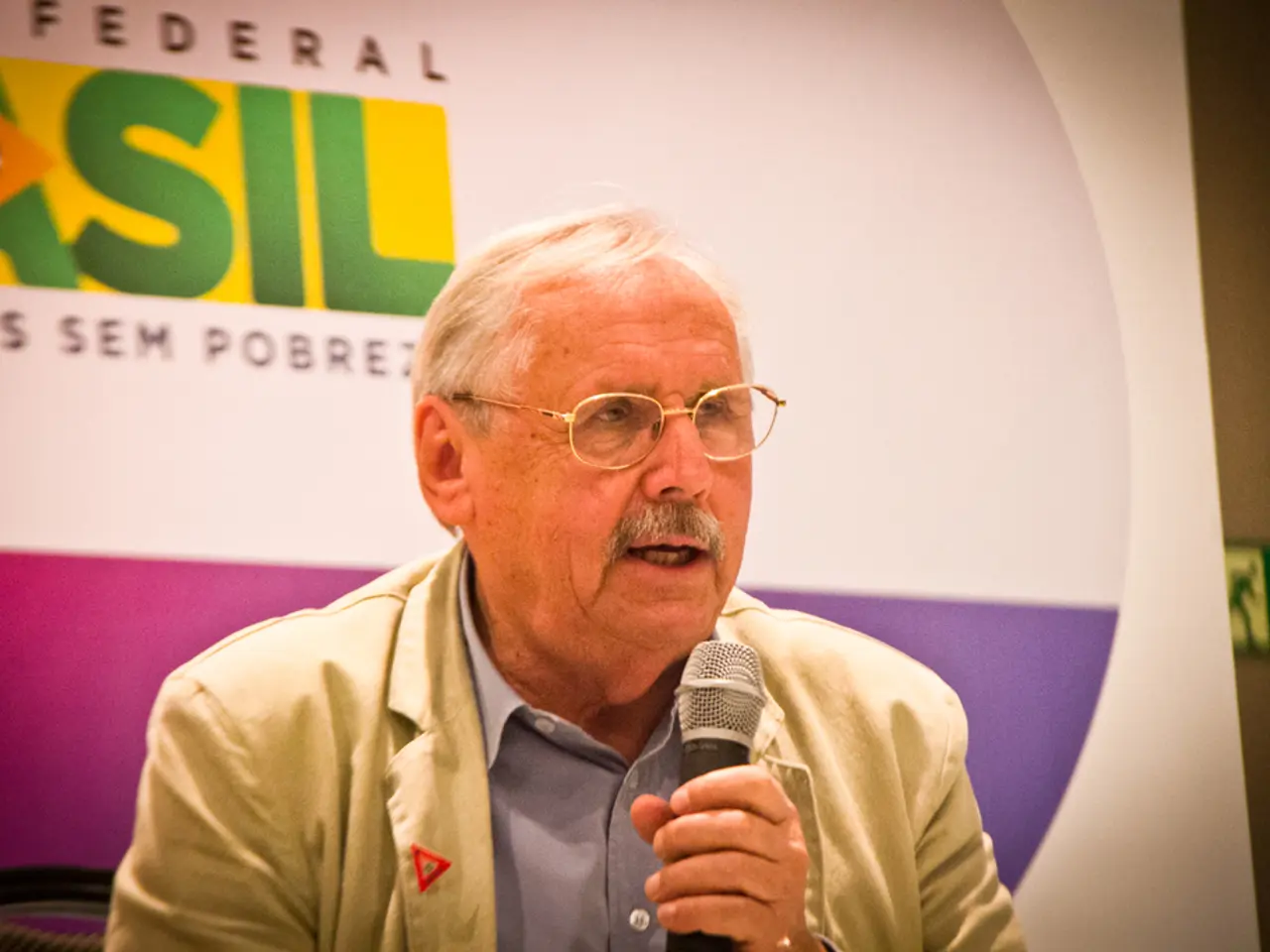Trump signs legislation for the withdraw of $9 billion in foreign aid and public broadcasting financing
Headline: Trump Signs $9 Billion Rescission Package, Sparking Controversy Over Foreign Aid and Public Broadcasting
In a move aimed at reducing government spending, President Donald Trump signed a bill cancelling approximately $9 billion in funding, consisting of roughly $8 billion for foreign aid and $1 billion for public broadcasting [1][2][3]. This rescission package, approved by Congress, was the first in decades to rescind previously authorized funds and was framed by the White House as a test case for future budget clawbacks as part of the Trump administration’s agenda to reduce government expenditures and assert budgetary control [1][2].
The decision to cut funding for public broadcasting, primarily financing NPR and PBS through the Corporation for Public Broadcasting, has drawn criticism from conservatives who view it as a politically biased and unnecessary expense [2][3]. On the other hand, the cuts to foreign aid programs were justified by the White House as a way to push other nations to take greater responsibility for humanitarian efforts and to prioritize American taxpayers’ interests [2].
The $1 billion cut to the Corporation for Public Broadcasting threatens more than 1,500 local radio and television stations nationwide, with concerns raised about potential closures, especially in rural and tribal areas where these stations provide critical emergency alerts (e.g., tsunami, landslides, volcano alerts) and important public information [2][3]. Sen. Lisa Murkowski (R-Alaska) voiced concerns about the severe consequences for residents relying on these services [2][3].
Regarding foreign aid programs, the approximately $8 billion reduction targeted agencies such as USAID and affected global health initiatives. Critics, mostly Democrats, argue these cuts would damage U.S. global standing, create opportunities for adversaries like China, and have deadly consequences by exacerbating disease, starvation, and poverty worldwide [2]. The administration contends that these cuts were necessary to curb perceived inefficiencies and overreach in foreign assistance spending and urges that other countries should increase their contributions [2].
In a unanimous rejection, Democrats argued that the Republican administration's foreign aid cuts would hurt America's standing in the world, create a vacuum for China to fill, and have deadly consequences for impoverished people [1]. Sen. Brian Schatz (D-Hawaii) went as far as to say the cuts would cause death, spread disease, and deepen starvation across the planet [1].
The White House, however, believes the rescissions best serve the American taxpayer and has indicated that more such rescission packages are on the way [1][2]. Some Republicans were uncomfortable with the cuts but supported them to avoid crossing President Trump or upsetting his agenda [1][2].
In conclusion, Trump’s signing of this rescissions bill has sparked controversy over the future viability of local public media outlets and the impact on international humanitarian programs [1][2][3].
- The rescission package targets approximately $8 billion for foreign aid and $1 billion for public broadcasting.
- The White House argues that the cuts to foreign aid would incentivize other nations to respond to humanitarian crises.
- Critics, mostly Democrats, argue that the foreign aid cuts would damage U.S. global standing and have deadly consequences.
- The Corporation for Public Broadcasting distributes most of its funding to over 1,500 local public radio and television stations.
- Sen. Lisa Murkowski (R-Alaska) expressed concerns about potential closures of local public stations due to the cuts to public broadcasting.
- The signing of the $9 billion rescission package, mainly affecting foreign aid and public broadcasting, has sparked heated debates within the realm of politics, particularly concerning policy-and-legislation and general-news.
- As part of the Trump administration's efforts to assert budgetary control and reduce government expenditures, the bill aims to cut approximately $8 billion for foreign aid, with the administration justifying these cuts as an incentive for other nations to increase their humanitarian contributions.
- Critics, primarily Democrats, believe that the $1 billion cut to public broadcasting will have severe consequences, imperiling more than 1,500 local radio and television stations nationwide and potentially affecting emergency services, thereby adversely impacting personal-finance and the wellbeing of numerous citizens.




